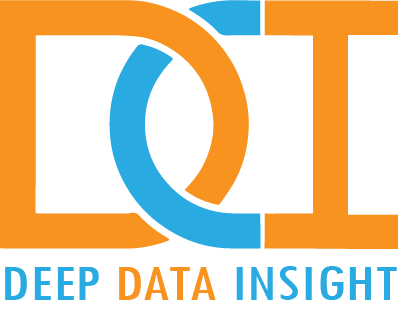
Enhancing Healthcare Cybersecurity with AI Solutions
Artificial Intelligence (AI) is rapidly transforming how healthcare organizations defend against cyber threats. As digital transformation intensifies, so does the risk of cyberattacks targeting sensitive healthcare data. AI solutions are no longer optional—they’re foundational to any modern strategy for data protection. In this comprehensive guide, we explore how AI in healthcare cybersecurity is enhancing threat detection, automating defense mechanisms, and fostering trust through proactive risk management. Why Is Cybersecurity in Healthcare More Critical Than Ever? The healthcare industry is a prime target for cybercriminals due to the vast amounts of sensitive patient data it stores. Medical records, insurance information, and personal identifiers are valuable on the black market, making robust cybersecurity measures not just a recommendation, but a necessity. Breaches in this sector can lead to identity theft, financial loss, and compromised patient care. The increasing reliance on digital platforms—including telemedicine, electronic health records (EHRs), and IoT devices—has expanded the attack surface for hackers. Cybersecurity in healthcare must address the following growing concerns: As digital health technologies evolve, the need for comprehensive, AI-powered cybersecurity solutions becomes more urgent. How Does AI Transform Cybersecurity in Healthcare? AI in healthcare cybersecurity plays a central role by offering capabilities far beyond traditional security systems. By analyzing massive datasets and identifying patterns, AI can detect anomalies that may signal cyber threats. These insights help predict and prevent data breaches before they occur. Machine learning algorithms form the core of this transformation. They adapt to new threats by learning from historical data, which allows for faster and more accurate threat detection. By leveraging predictive capabilities, cybersecurity teams can proactively detect and respond to threats before they escalate into full-scale breaches. Automation is another critical advantage. AI handles routine security tasks—such as scanning for malware or monitoring system logs—freeing up IT teams to focus on more complex threats. This approach not only boosts overall operational efficiency but also accelerates incident response times, enabling faster mitigation of cyber threats. What Are the Key AI Technologies Enhancing Healthcare Data Protection? To fully appreciate the impact of AI on healthcare data protection, it’s important to understand the specific technologies being deployed: 1. Machine Learning (ML): ML algorithms are essential for anticipating cyber threats. They continually analyze patterns in data to identify suspicious behavior and adapt to new attack methods. 2. Natural Language Processing (NLP): NLP aids in identifying phishing emails and social engineering attempts by analyzing the language used in communications. It understands the context and intent behind messages, making it harder for malicious actors to deceive users. 3. Deep Learning: Deep learning models excel at recognizing complex cyberattack patterns that might evade traditional detection systems. They work especially well in large-scale data environments common in healthcare. 4. AI-Powered Encryption Tools: These tools ensure secure data transmission by encrypting patient records. They are vital in maintaining confidentiality and preventing data tampering. 5. Automated Incident Response Systems: These systems react instantly to detected threats, reducing the time between identification and action. By combining these technologies, healthcare providers can construct a multi-layered defense system that protects sensitive patient data and supports regulatory compliance. How Are AI-Driven Solutions Benefiting Hospitals? Hospitals are embracing AI-driven cybersecurity solutions because they bring several measurable benefits: Faster and More Accurate Threat Detection: AI systems can quickly identify abnormal behavior in networks, helping to mitigate threats before they escalate. Efficiency Through Automation: By automating mundane security tasks, hospitals can reallocate IT resources to critical challenges that require human judgment. Cost Savings: Preventing breaches is significantly less expensive than dealing with the fallout. AI reduces the need for large-scale incident response measures by stopping attacks early. Better Compliance and Trust: AI tools help hospitals adhere to data protection laws, which enhances public trust and reduces the risk of regulatory penalties. These benefits are not theoretical—they’re being realized in real time, contributing to stronger, more resilient hospital cybersecurity infrastructures. What Are the Real-World Applications of AI in Healthcare Cybersecurity? AI isn’t just a concept—it’s already in action across healthcare settings. Hospitals and clinics are using AI in the following ways to enhance cybersecurity: Network Traffic Monitoring: AI-powered network traffic monitoring enables continuous surveillance of data flow, instantly identifying anomalies that could signal potential cyberattacks. Predictive Vulnerability Analysis: By analyzing past incidents and usage patterns, machine learning models can predict potential weaknesses and recommend preventive actions. Medical Device Security: AI helps secure connected medical devices, ensuring they aren’t exploited by malicious software. Strengthening EHRs: AI enhances security layers within electronic health record systems, ensuring patient data is accessible only to authorized personnel. Telemedicine Security: With the rise in remote care, AI helps protect virtual consultations and patient data transfers. These applications are already strengthening the digital backbone of healthcare services, providing peace of mind to both providers and patients. What Are the Challenges of Using AI in Healthcare Cybersecurity? Despite its benefits, AI adoption in healthcare cybersecurity is not without risks. Understanding and managing these challenges is essential for safe and effective implementation: 1. Risk of Errors: AI systems can sometimes generate false positives or miss subtle threats. Thorough testing and human oversight are crucial. 2. Ethical Concerns: Patient data is highly sensitive. Ensuring AI respects privacy and operates within ethical boundaries is paramount. 3. Regulatory Compliance: AI must be designed to comply with laws like HIPAA. This involves strict data handling protocols and documentation. 4. Transparency and Accountability: AI decision-making processes can be opaque. Ensuring transparency in how decisions are made is vital for accountability. 5. Staff Training: Employees must understand how to use AI tools effectively. Training programs are essential to avoid misuse or misinterpretation. By proactively addressing these concerns, healthcare organizations can safely harness AI’s full potential while upholding standards for privacy and security. What Are the Best Practices for Implementing AI in Healthcare Cybersecurity? For successful deployment, healthcare providers should follow several best practices when implementing AI-driven cybersecurity solutions: Start with Risk Assessments: Identify existing vulnerabilities and assess how AI can address them. Focus on Data Quality: AI systems rely on clean, accurate data. Poor-quality

